
独立媒体,非营利性质,我们关注环境、教育、性/别、精神健康等公共议题,提供负责的纪实性内容。欢迎在这些平台关注我们:https://linktr.ee/ngocn Email: ngocn2020edit@protonmail.com
The revolution and love of protester Li Qiaochu
This article is jointly produced by End Media and NGOCN Voice Project. It was first published by End Media. This article is the original version of the author.
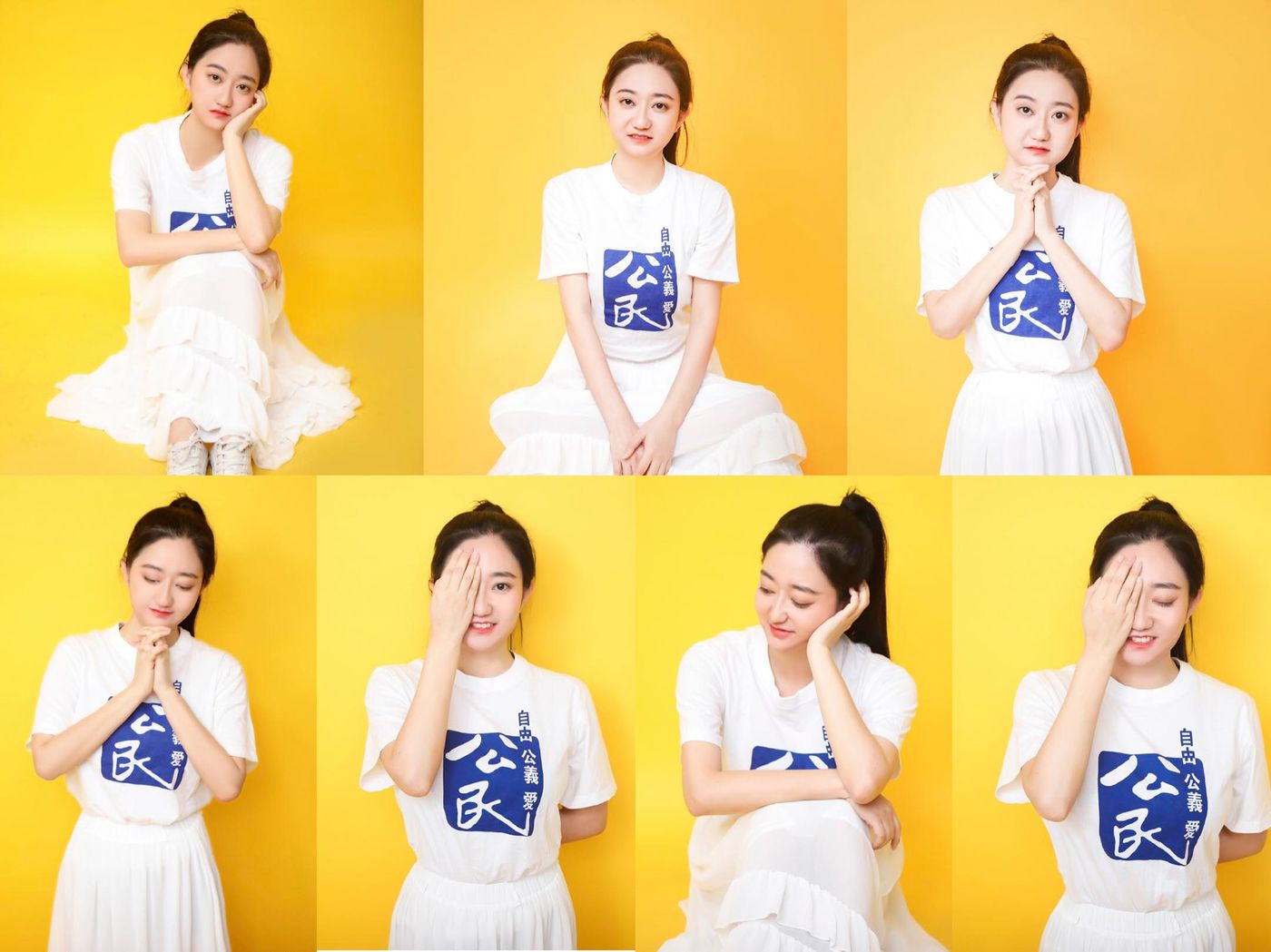
This is a revenge arrest.
When human rights lawyer Chang Weiping was imprisoned again while out on bail, Li Qiaochu clearly understood the essence.
A group of youth activists launched a solidarity action two days later. FreeChangwei-Chang Weiping 's Facebook page has been set up. Li Qiaochu spreads and calls for the performance art of "#walkOneKilometerLetChang Weiping regain his freedom" and sending postcards in the community. Chang Weiping's self-report before his arrest was also quickly translated into English for use by international media.
For many years, he has paid attention to public events, participated in the Beijing evacuation, the #MeToo movement, and defended the rights of labor and human rights lawyers. In addition, he has continued to support the December 26 Xiamen citizen case in the past year. Li Qiaochu has become comfortable and methodical in rights protection actions.
"The purpose of the retaliatory arrests is to intimidate and threaten the family members of the December 26 citizen case to silence us. If we are scared and shrink back, they will further persecute." Li Qiaochu is very determined and her actions will not stop, no matter what There are many thorns on the road ahead.
Maybe you can't defeat the gangster, but you can pull off the gangster's mask. Writing, recording, and exposing the hypocritical mask of totalitarianism have almost become the focus of Li Qiaochu's life after he was released on bail pending trial.
While supporting Chang Weiping as a prisoner of conscience, Li Qiaochu continued to publish a series of articles about her previous " incitement to subversion and designated residential surveillance for 120 days ", exposing every detail of her stay under residential surveillance and accusing totalitarianism of maximizing control in the name of "national security". The exercise of absolute power deprives a person of his life force. Her latest bold move is to publish a three-page indictment against the Beijing Municipal Public Security Bureau and mail it to the Beijing Municipal People's Procuratorate, demanding that the police supervise and correct the illegal behavior in accordance with the law, such as illegally summoning her for 12 hours and forcing her parents to write a guarantee letter. She was also placed under house arrest for 20 days around International Human Rights Day.
In prison, “living is to be constantly interrogated.”
Now that he has regained his freedom, living is for "revolution and love" for Li Qiaochu.
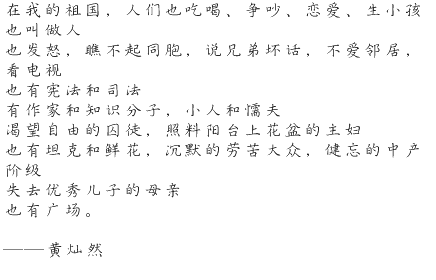
"Revolution and love are my life and the theme of my life." Li Qiaochu emphasized to his friends many times, just like a determined activist.
Her best friend Lin Yue was deeply shocked when she heard this. She was so sensitive that she didn't react for several seconds. They met in college and later studied together in the UK. They fantasized about love, talked about labor rights, religious beliefs, and democracy and freedom, but they never planned to become revolutionaries or activists in the future.
"She is the purest person I have ever seen." Lin Yue said. The background of Qingchou's life was originally brisk and bright, which made her envious.
Li Qiaochu grew up in a middle-class family in Beijing. The family atmosphere was relatively democratic and free, and respected personal choices. She has always been "someone else's child" - a gentle personality, excellent grades, well-behaved and obedient. Both parents are middle school teachers. My father teaches physics and my mother teaches mental health. They never provide utilitarian education to leaders. They don’t expect their children to become dragons and phoenixes like so many parents do. Instead, they teach her to “be kind, honest, and be a good person.”
In the senior year of high school, most schools secretly provide make-up classes for students on weekends and require parents to sign a voluntary make-up class notice. Qiaochu's parents disagreed and refused to sign. So, on the teacher's desk, there was a thick stack of signed tutoring notices on one side, and only the solitary one for the leader on the other side.
Throughout the weekend of my senior year, my parents took me to watch plays, listen to concerts, and go on picnics. The school approached her parents to talk about Qiaochuang's future and hoped that their parents would cooperate. Her parents replied, "Don't worry, my children can go to three schools."
Recalling his childhood, Leader always smiled cheerfully and commented that his parents were "too big-hearted".
It was also the sterile paradise that Lin Yue envied most: her parents were loving and harmonious, respected their children, and did not exert pressure; she had many friends around her, all of whom were sincere and friendly. The leaders who grew up in this environment are "very kind, sincere and pure."
A leader who grew up under a Buddhist education, he was easily admitted to Renmin University in 2009, where he studied labor relations and began to pay attention to workers. At that time, the concept of the new generation of migrant workers had just been proposed, and rights protection incidents such as Foxconn workers jumping off buildings and workers with pneumoconiosis in Hunan repeatedly made news. Leaders participated in the two-year research project on "New Generation of Migrant Workers" and frequently went to construction sites to complete questionnaires and contact labor groups. Only then did I begin to understand the reality and cruelty of society.
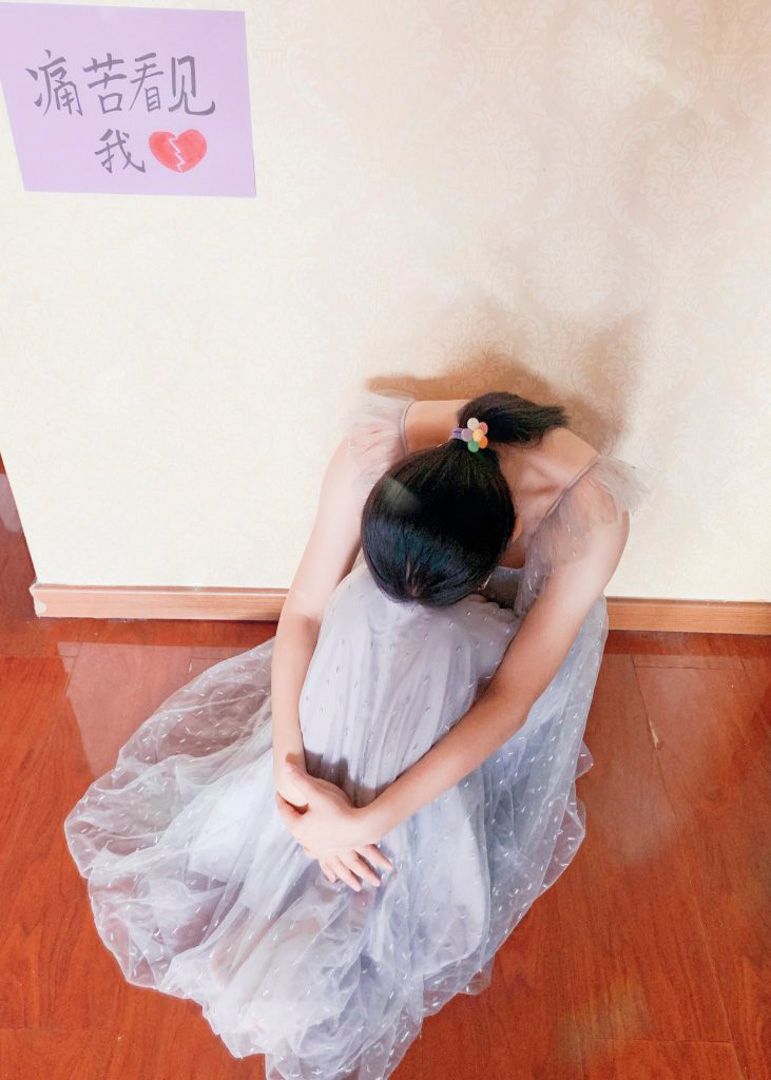
Seeing the struggles of real individuals, the leader developed feelings for the labor group, was dissatisfied with the discrimination they suffered, reflected that he was a vested interest in the system, and expected that the middle class could take on more responsibilities in promoting social equity.
She learned to use a VPN and often felt uneasy about the more unfair aspects of China: Tan Zuoren was arrested for compiling the list of students affected by the Wenchuan earthquake and asking about the quality of school buildings. Liu Xiaobo, who won the Nobel Peace Prize, was sentenced to 11 years in prison for "inciting subversion of state power." She expressed support outside the court and remembered that the winter that year was extremely cold. Xu Zhiyong and other legal scholars launched the New Citizens Movement to promote equal rights in education, but were blocked by many parties. Citizens commemorating the victims of June 4th were arrested and convicted. Migrant workers were beaten by collective security guards for defending their rights.
Insecurity drives action. Since 2009, Qiaochu has begun to pay attention to civil society, and has made independent records, sorting out major public events every year, excerpting relevant poems, and fighting against the short memory and unified narrative of the Internet. It has persisted until 2019.
"Her feelings about human suffering are real, and her desire for social reform and change comes from the bottom of her heart." Lin Yue believes that outstanding citizen participation and protest actions are just a young man who has retained his due conscience and done what his conscience should do. things to do. However, in the current context in China, acting according to one's conscience and protesting against injustice is invisibly taking the path of an activist .
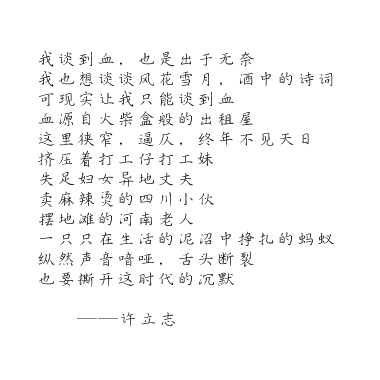
"Xu Zhiyong's girlfriend", after January 9, 2020, people began to emphasize Li Qiaochu's identity.
That day, she wrote an article exposing her 24-hour arraignment experience during the New Year with handcuffs , and also disclosed her intimate relationship with Xu Zhiyong for the first time. Xu Zhiyong founded the Gongmeng League to promote China's democracy and legal system, and later launched the New Citizens' Movement. He is a leading figure in Chinese citizens' rights protection. It was precisely because the National Security Bureau could not find Xu Zhiyong that they summoned his girlfriend Li Qiaochu to obtain information.
Soon, in relevant media reports and support, Li Qiaochu's name was always preceded by the title "Xu Zhiyong's girlfriend", praising their "beautiful love" and calling her "the woman behind the great man". Li Qiaochu's continuous public participation And action is often ignored.
Leader criticizes this kind of expression that ignores personal subjectivity and regards women as subordinates. Although she does not resist the identity of "Xu Zhiyong's girlfriend" - this is a fact. Even when the national security guards used evidence they thought to try to drive a wedge between them during the interrogation - she did not Believe in each other's feelings as revolutionary partners. However , she also hopes that people can see multiple aspects of her—a labor rights advocate, a feminist, a Christian, and a protester who regards "revolution and love" as the themes of her life.
Li Qiaochu's frequent citizen actions began in 2017. That winter, after a fire broke out in a cheap illegally constructed apartment in Beijing, the authorities used the excuse to launch campaign-style "control" such as "clearing out the low-end population" and "showing off the skyline." The massive cleanup displaced tens of thousands of migrant workers overnight.
Qiaochu rushed to Pi Village, which was about to be demolished. She remembered the cruel scenes that only appeared in movies: on one side were the tenants who were still fighting due to water and power outages, and on the other side were the police who came to drive them away with riot shields. They did not dare to resist. Tenants cried and moved in the dark. In the empty rental house, the half-burned candles were particularly dazzling.
Of course she was angry. At night, she teamed up with volunteers and media reporters to move into tenants' homes and help them keep vigil to avoid violent demolitions. During the day, she went to more urban villages to collect the needs of tenants, and at the same time sorted out organizations and contact information that could provide free or affordable accommodation, helping the evicted people find a place to store their luggage or stay for a few more days.
During the busy action, Qiaochu felt like he was alive. Participating in the rescue of public incidents is more like a kind of self-rescue for her, helping her to rebuild her self-worth that was shattered in her previous marriage.
Today's leaders reflect that citizen participation at that time was more about humanitarian relief and the service mentality of NGOs, and there was a lack of strong actions to hold the government accountable . "Instead, it was like the government ordered to evict people, and we helped the tenants leave, but there was no response. Their real needs and plight - stay." The #MeToo movement, which was booming in 2018, tried to respond to the needs and plight of sexual assault victims. Leaders became more actively involved. She and her partners raised legal fees for Wuhan University of Technology student Tao Chongyuan who committed suicide by jumping off a building, and went to Wuhan to comfort Tao Chongyuan's sister; she paid attention to the sexual assault incident in Shenyang, a former Peking University professor, and called on Peking University to disclose information and support the students who were interviewed.
China's social environment has never been tolerant of women, and civil society circles are no exception. When Lingchu accused Wang Jiangsong, an expert on labor issues, of verbal sexual harassment, the response she received was more like "don't make it public" and "the overall situation is more important." After all, they say that civil society is in decline and should not be used to crack down on the government. Having personally experienced the dual oppression of the regime and male power, the leaders have clearly seen that many seniors who hold the banner of freedom and democracy still regard men as inferior to women, respect women's virtues and lack the ability to reflect.
"In the real situation where there is a lack of political opposition , it is even more necessary to return to the individual's plight and true expression ." Liaochu said frankly that she did not want to beat "the big boss to the ground." What she opposed was the indifference of the overall situation and the harm to individuals. ignore .
Despite being injured, Li Qiaochu never stopped moving. When the COVID-19 epidemic swept across the country in 2019, Lingchu was worried about her boyfriend Xu Zhiyong's "escape" while engaging in voluntary work. She purchased masks and gave them to sanitation workers in the community for free. After learning that a partner was running an online clinic, she designed posters on virus prevention to help connect ventilators and patients. After discovering that the toilets in the makeshift hospital were gender-neutral, she organized volunteers to collect and organize suggestions for preventing sexual violence.
The vibrant folk self-rescue once gave people the illusion that Chinese civil society was once again flourishing. Leaders calmly analyzed that these private aids, just like the "Beijing Clearance", were within the scope of humanitarian aid, failed to hold the government accountable, and failed to create opportunities for civil society to survive.
The reality is even more ridiculous. Actors who actively participated in civilian rescue operations were arrested one after another. Volunteers Chen Mei and Cai Wei who collected and preserved epidemic information were "picking quarrels and provoking troubles ." Writers who donated supplies to Wuhan were threatened with "spreading rumors." Zhang Zhan and Chen Qiushi, who went to do independent reporting, were disappeared. As a result, leaders were engaged in non-governmental rescue work and supported these activists on social platforms.
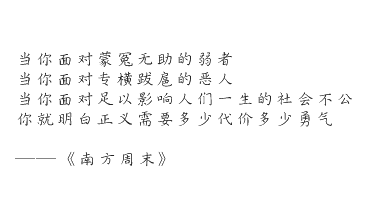
The crime of inciting subversion of state power carries a maximum penalty of death.
On February 16, 2020, Li Qiaochu was placed under residential surveillance at a designated location. This was what the national security told her during her interrogation. She never thought that the identity of Xu Zhiyong’s girlfriend would expose her to the crime of conspiring to incite subversion of power.
Back in December 2019. Li Qiaochu’s boyfriend Xu Zhiyong went to Xiamen to attend a gathering of lawyers, scholars and citizens to discuss China’s current affairs and future as well as experiences in building civil society. On December 26, lawyer Ding Jiaxi and citizens Dai Zhenya, Zhang Zhongshun and Li Yingjun who attended the meeting were arrested by the police. This incident was called the "12.26 Citizen Case."
Xu Zhiyong began to flee in his own country. While on the run, he also wrote the famous "Letter to Dissuade" , questioning Xi Jinping's ability to handle the Sino-US trade war, the Hong Kong protest movement and the new crown epidemic, and demanding that he step down. In order to find out information about Xu Zhiyong, Beijing National Security Bureau summoned Li Qiaochu for 24 hours on December 31.
On February 15, 2020, Xu Zhiyong was arrested in Guangzhou. In the early morning of the next day, Li Qiaochu was arrested.
This is an unforeseen disaster. Her family and friends were outraged.
" It's such an injustice, it's such an injustice. " Ding Jiaxi's wife Luo Shengchun sighed after hearing the news that Leader was imprisoned. "Liu Xia is Liu Xiaobo's wife, and she was only placed under house arrest. Leader is just Xu Zhiyong's girlfriend, but she was imprisoned." Prison is so abominable." Liu Xiaobo is a well-known dissident in China. After winning the Nobel Peace Prize in 2010, his wife Liu Xia was placed under house arrest for eight years.
After being released from prison after being imprisoned for four months, Lingchu analyzed that the family members/partners of the separatist activists have become the authorities' stabilization strategy and suppression method. The purpose is "to deny family members/partners space to speak out and prevent family members from forming a rights protection alliance."
During the 2015 709 massacre of human rights lawyers, the authorities imprisoned more than 200 people, allowing the families of human rights lawyers to form a rights protection alliance - 709 Families. Among them, 709 wives are very prominent. They adopted a unanimously non-cooperative attitude of resistance, and launched highly creative resistance actions such as "Looking for a Husband Thousand Miles Away", "Red Bucket Protest" and "I can do it without hair, but you can't" within the scope of the law, winning international attention. and solidarity and support, opening up a new space for rights protection.
The authorities quickly adjusted their strategies: first, they no longer arrested on a large scale, but instead arrested individuals individually or in twos and threes to prevent family members from forming a larger alliance. The second is to arrest the perpetrators and simultaneously target or threaten to target their family members/friends. Even if the family members/friends are later released on bail pending trial, legal restrictions will further reduce the space for support actions. In the past two years, there have been many similar cases: Shi Minglei, the wife of NGO activist Cheng Yuan, was threatened with "inciting subversion" and was placed under residential surveillance for six months; poet Wang Zang and his wife Wang Li were both imprisoned for "inciting subversion" ; Endpoint Cai Wei and his girlfriend Tang Hongbo were both arrested for "picking quarrels and provoking trouble" in the Xing case ; cultural entrepreneur Geng Xiaonan and her husband were both criminally detained for "illegal business operations."
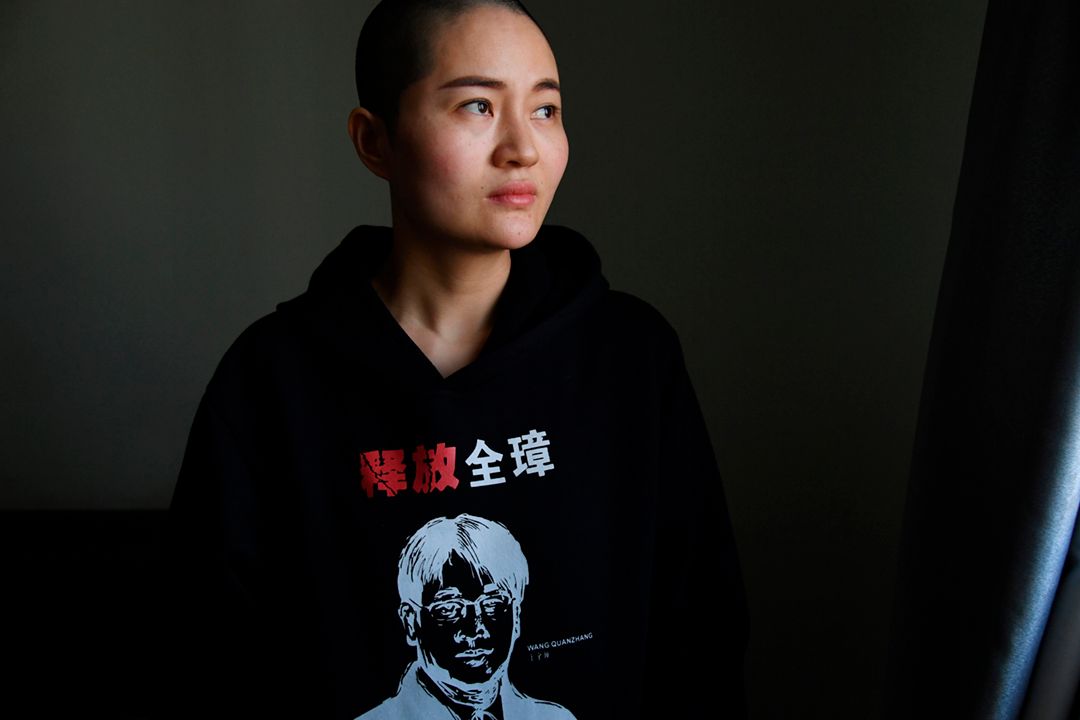
This requires family members/partners to develop new coping strategies. From the 709 wife’s struggle, the strategy learned by Liaochu is “the more open it is, the safer it is.”
While using administrative means to apply for information disclosure, she requested the disclosure of information such as the location of the residential surveillance, the drugs she took at the time, the qualifications of the doctor, etc.; at the same time, she disclosed the details of her experience of residential surveillance and the continuous harassment and intimidation by the state security. She even made public the name and phone number of the national security guard.
The resistance has been effective, the state security has restrained itself, and the number of harassments and number of people have decreased. "You can't beat the gangsters, but you can tear down the arch." Qiao Chu concluded. The more he made it public, the more he found that his fear and powerlessness were gradually fading away. There has been no interview with the National Security Bureau for nearly a month, and she is a little uncomfortable. "If they don't come, I have nothing to write. I have taken the initiative, and now it is the mouse trying to catch the cat." Leaders often share their feelings with their partners, but they are very The pressure and heaviness of fighting alone are rarely mentioned.
Luo Shengchun was both heartbroken and admired when he saw the leader making web pages, writing articles, designing postcards, making posters, and promoting information disclosure procedures all by himself. He went from being timid and timid when he was released on bail to now letting go and fighting bravely. She is the wife of Ding Jiaxi in the 12.26 citizen case, but she is in the United States and has no way to fight with the leaders.
Space and freedom are fought for. Luo Shengchun also knows that she can only regret that the 12.26 citizen case has not yet formed a rights protection alliance like the 709 wives. "The leader is the only voice in the country. She is under all the pressure of support. She also has depression and trauma."
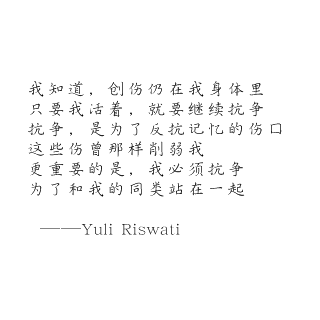
Trauma can be triggered at any time.
Hallucinations, insomnia or drowsiness, unstoppable nightmares, even when practicing mindfulness, the sentence "sitting half up on the chair" in the audio can be like an electric shock, causing her to flash back to the guard's voice when she was under residential surveillance. A loud reprimand: The target sits tight! Target hands down! Don't move the target!
At that time, she was not regarded as Li Qiaochu, or even as a human being. She was just their "target".
Some scenes have been tightly entangled, with feelings of guilt and shame coming over her: when she asked the state security to give her antidepressant drugs, when she thanked the state security for occasionally bringing her fruit, when she begged for forgiveness after taking medicine and vomited, and was threatened with more guards. When the number of female police officers was increased, when she wrote a letter of repentance over and over again, when she was asked to criticize Xu Zhiyong’s thoughts. That feeling of humiliation, "It's like wanting to bite your tongue and commit suicide, but you still have to sing a hymn without leaving your tongue behind."
Qiaochu lay in bed for a whole week, thinking about suicide. It seemed like she was back in 2017. The harm she suffered in her marriage, coupled with the deterioration of the civil society environment, made her feel that she had been permanently damaged. During the most difficult time, she attempted suicide in various ways, using sweets, junk food and alcohol to ease the pain. I was afraid that my parents would be disappointed and I didn’t dare to go home. After quitting her job and getting divorced, she locked herself in the apartment and let herself get moldy. Too lonely and helpless, she could only hold on to the gradually declining civil society and the people who still persisted. That was her life-saving straw and her hope. She saw tens of thousands of people displaced overnight, but she also recalled some people who calmly recorded their situation on camera and confessed their love to their families in the face of imminent arrest outside their doors. She was hurt by sexual harassment, but also connected survivors, empathizing with each other and warming each other. In the end, relying on her love, admiration and curiosity for the world, as well as her reluctance and unwillingness to live, she persisted and coexisted with the trauma.
Qingchu also thought of recording, placing his trauma in the environment of state violence, recalling and writing about it every day , "Trauma and feelings are also a kind of historical testimony, a witness to state violence."
In the process, she also gradually understood that the body is soft, not a hard machine part, and can be injured and painful; the will can be strong, but there are also times when it is fragile. She has been afraid and compromised. Although her fighting posture is not perfect, it is her true self. She slowly accepted her state of "trembling legs and wiping tears while walking forward."
After accepting an imperfect but complete and true self, the strength to fight seemed to suddenly come to her. She transformed her sense of humiliation into action and helped herself up again. She gradually showed different aspects on different platforms. A "gentle, tough, somewhat fragile" protester is how she describes herself on Twitter. Many posts reveal the fragile mentality of "fear of being disappeared again" and "being cautious", striving for wider attention and sympathy.
What’s funny is that later the national security officers found Qiao Chu and told her, “You call yourself so timid, but nothing has ever stopped you.” What they were referring to was that Qiao Chu showed fear and timidity while still insisting on information. Publicize and expose the contents of interviews with national security agents and their identity as national security agents.
On Facebook, she has a sharper side. She criticized the so-called "democratic bosses" who hold up the banner of democracy and freedom while denying women's equal personality and rights. She envied the feminist activist Zheng Churan who boldly posted photos of her armpit hair. Publisher Geng Xiaonan was called "the woman of the Decembrists." Leaders even criticized the treatment of Geng as a subordinate role, asking sharply, "Who in China can be called a Decembrist?"
Han Ji, a good friend who is also a labor researcher and activist, was surprised to find that the leader who was released on bail still looked weak, but her heart was stronger. “She has trauma, she can express her vulnerability, cry, and complain. She will be sad, but she never delays action. There seems to be a force growing in her heart, pushing her to keep moving forward."
The Korean and the leader met in July 2018, and they worked together to help the arrested students of the Jasic Support Group . What impressed the Korean people the most was the sports ethics of leaders as actors . At that time, some people encouraged others to conceal the nature of the case and deliberately downplayed the risks involved in participating in solidarity actions. Leader expressed different opinions, "She can risk herself, but she does not ask others to follow suit. She hopes that everyone participating in the movement will fully Be informed, understand the risks, and make your own choices.”
In the 12.26 citizen case, Lingchu also understood the plight of other family members and never forced them to participate in resistance and support without hesitation, although this meant that she had to fight alone.
The Koreans saw the leader being vulnerable at the end of 2019. Xu Zhiyong was still on the run, and the leader was tracked by the national security when he came in and out. She was once so weak that she fell on the subway steps, unable to stand up, with tears always in her eyes. "She is in much better condition now. She seems to be more concerned about the safety of others than herself."
"Born for sports." According to Han Ji, Qiaochu has made resistance a habit and instinct. "There is no need for ideological struggle at all. Resistance is her self-rescue and her life itself."
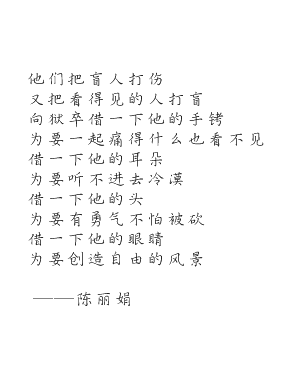
Revolution and love are the themes of my life. Qiao Chu said more than once.
What does revolution mean? has no meaning? I ask her.
To be awake, to be aware, to be alive is revolution. Seeing the problem and seeing the reality is the meaning.
A round of arrests forced the leaders from unknown volunteers to real-name protesters. She reflected that she used to only shout slogans, but now she uses her flesh and blood to experience revolution and love.
She even reflected that because of Xu Zhiyong’s fame, she became a vested interest in the limited support space and received more international attention than other prisoners of conscience. She felt that she had more responsibilities and moral obligations. She could not abandon her brothers and sisters, and she had to speak out for herself, Xu Zhiyong, Chang Weiping, and more prisoners of conscience.
Since we want to fight, we must make fish bones. Qiaochu said , "Even if you are going to be swallowed up, you have to keep the other side in your throat. Even if you are going to be broken, you still have to stand there and become a stumbling block for the other side. Even if you are destroyed, you have to expose the process of destruction." This kind of kind. The resistance attitude of the deadlock is similar to the "recruitment for speculation" mentality of Hong Kong protesters.
In fact, the real experiences of many protesters made her realize clearly that cooperation or concession will not make the arrested partners suffer less or reduce their sentences, and totalitarianism will not stop the pace of oppression just because of personal compromise and silence. "Actually, Open struggle is not an option, it is the only way out.”
"Her resistance was very brave, even decisive, and she was completely non-cooperative." Shanzhu, an activist who had also been placed under long-term residential surveillance, said that she originally envied the leader's resistance attitude. "She wore a citizen's shirt after being summoned. I took artistic photos, and later I took wedding photos, showing a very beautiful attitude of a protester."
However, Shanzhu gradually discovered that "the leader is very tolerant and gentle to others, but he is very harsh on himself, pushing himself too hard and fighting more and more decisively." She once saw people walking on the roadside unable to restrain themselves. The leader burst into tears.
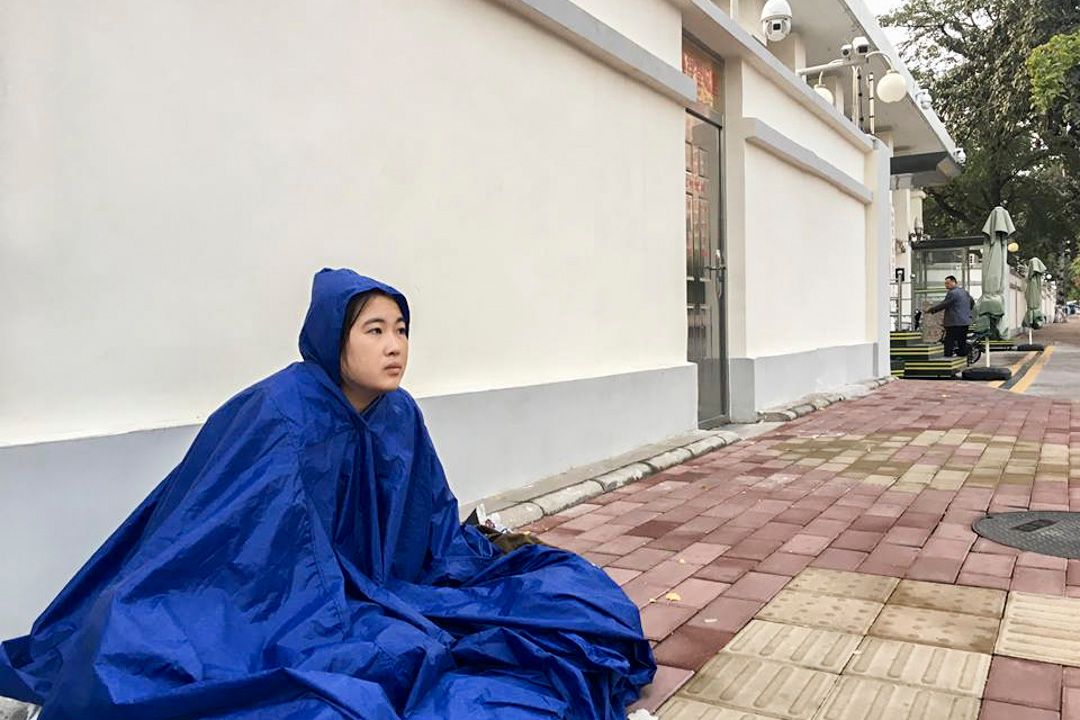
Shanzhu and Qiaochu visited Li Ning, who had been defending her mother's rights for ten years . Li Ning told them: "Life is short. If you insist on fighting for rights, you can't pursue anything else." The mother sought justice. Li Ning was unable to study or work normally for ten years. His health also collapsed and he needed to continue to take medicine. His family life was not ideal. Li Ning's decisive temperament made Shanzhu feel, "The two of them (Qiao Chu and Li Ning) have more and more similar temperaments. They fight like warriors, hiding all the weak and fearful aspects of human nature."
"The ability and courage to fight for freedom with one's own lack of freedom." Shanzhu thought of these words from scholar Deng Xiaomang. It was only recently that she had a clearer understanding of herself and gradually had the idea to find herself again. Courage and ability.
The companions began to understand that a sincere and righteous leader could not forgive himself for being insincere and unjust under the power machine. She felt that she needed more decisive resistance to regain herself. Her unwavering determination was not only to fight against totalitarianism and transform shame, but also to survive.
A person who was originally bright and light gradually became heavy, intense and decisive after fighting against totalitarianism and patriarchy. But Li Qiaochu refuses to feel sad. She occasionally cooks a dish to show off her cooking skills, complains about her boyfriend's straight cancer from time to time, and makes fun of her increasing followers every time she is interviewed by the National Security Agency. She writes an article to expose the details of residential surveillance not to exaggerate the misery, but to straighten things out. By looking at trauma and weakness, we are also fighting back against totalitarianism by telling the truth.
"Even after analyzing the risks many times, Ling Chu still has no hesitation. Female protesters are a beautiful landscape in the history of China's human rights struggle. Sometimes they are more courageous and moving than men's struggles." Teng Biao, a human rights lawyer living in the United States, admires Ling Chu's efforts despite being released on bail. Such a resolute attitude of resistance.
Xu Zhiyong's friend and activist Hua Ze was once very worried about Qiaochu's mental health and mental state. She knew about Qiaochu's depression and felt sorry for the injustice and various injuries she suffered. But Hua Ze discovered that the leader "is not a soft persimmon, but a plasticine. It is tough and elastic. It can fight back elastically when anything hits it."
Hua Ze watched the leader grow rapidly. He was not only determined but also strategic. When Qiaochu wrote an article to expose her experience of residential surveillance, she once suggested publishing a long article after finishing the writing, but Qiaochu replied, "We need to extend the time line and publish a part at a time so that the case will continue to attract attention." "Strong learning ability and theoretical knowledge. He also has rich resistance experience." Hua Ze even saw the shadow of a future strategist in the leader.
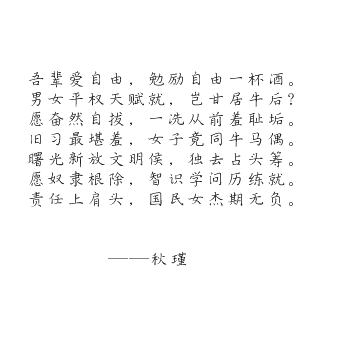
Some time ago, the movie "Mulan" was released. Li Qiaochu recorded her feelings on Facebook: Mulan is not a story about joining the army for her father, nor is it a story about loyalty to the emperor and patriotism. It is a story about women breaking through the many shackles to fight in the war. In the past few years, Qiaochu has seen many Mulans going out to fight, and now she has become one of them. When Mulan goes to the battlefield, she needs to overcome physical and psychological thresholds. In the real circle of activists, it is no less difficult for female protesters to maintain their subjectivity, express their personal opinions, and learn to ignore negative comments from the outside world than when Mulan went to the battlefield.
"We need to grow back our scales to resist totalitarianism and patriarchy." Leaders no longer cover up their partners' problems: they pursue democracy and freedom, but lack gender awareness and fail to recognize their partners' contributions and the value of female protesters. They want to be the protagonists in the social reform movement themselves.
The male protagonists were caught one after another. After 2013, the space for Chinese citizens to act has become increasingly limited, the cost of action has become higher and higher, and the intensity of arrests has become increasingly intense. Many citizens involved in the December 26 citizen case have been released on bail or have fled China. But they all remained silent. In the December 26 citizen case, Li Qiaochu was still the only voice in the country.
Chang Weiping, the lawyer in the same case, established contact with the leader not long ago. The first sentence he said was, "Sorry, you have to bear it alone for so long." Such a moment of recognizing the value of female protesters' struggle is precious, but Chang Weiping He was soon arrested again. Lingchu felt obligated, "Until his family members come forward, I am his family member."
Li Qiaochu once made it clear to Xu Zhiyong: she wants a partner who can see herself as a "revolutionary partner" rather than a "good wife at home".
Female activists are seen as partners, but their value as activists is often overlooked. Leader is very aware of this dilemma, "Male protesters are unwilling to acknowledge the contribution of women in the public sphere, which generally strengthens their subordination and dependence. Women are suppressed, devalued, and ignored everywhere. During the struggle, they may I have lost my own words and my own subjectivity.”
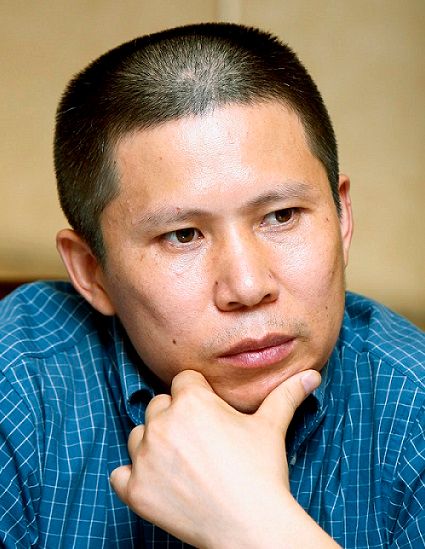
Leaders will also reflect on whether they sometimes lose their subjectivity during the struggle. During her close relationship with Xu Zhiyong, when she posted on Twitter, she once had to seek Xu Zhiyong's opinion and obtain his approval before posting. In order to support Wei Zhili, editor of "New Generation", she took a set of photos on the Great Wall and posted them on social platforms. Xu Zhiyong did not forward it and asked why. It turned out that he felt that "you were taken too high in the photo, which does not match your gentle temperament and image."
The leader and his companions are enjoying the hardships: now they seem to be able to fight in their own way. She is free to choose the pictures and words she wants to use to support prisoners of conscience. She can share her paintings without fear of being laughed at for not being good enough. She can decide her own fighting strategy. She can be fragile and timid, or she can be strong and decisive. "Xu Zhiyong used to often laugh at me for being timid, crying, and fragile. He couldn't imagine me being strong."
"Although Qingchu doesn't have as glamorous resume as Xu Zhiyong, the more I get in touch with her, the more impressed I am by her personality." Han Ji once said frankly that it was the existence of a pure and sincere person like Qiaochu that kept him from despairing of action.
Hua Ze also praised Qiaochu's morality and personality, "She always said that she was also a vested interest. Even if she was attacked, she got more attention and made greater use of her attention to speak out for others. Qiaochu's tenacity and morality Far above many well-known people." As a female protester, Hua Ze also experienced and witnessed sexual harassment and suppression by well-known protesters against their partners or other female protesters during her struggle. She found that the older generation of men Protesters lack the ability to continuously learn, reflect and introspect. However, the new generation of female protesters have stronger learning abilities, are more empathetic and reflective, and may have more potential and ability to change China.

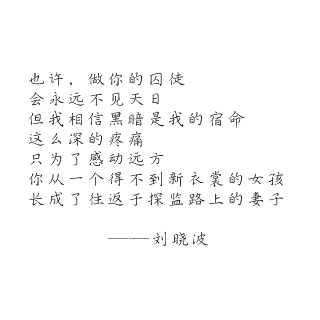
"You have grown from a girl who couldn't get new clothes to a wife on her way to and from prison." This is a poignant love letter written by Liu Xiaobo to Liu Xia, which witnesses the fate of a Chinese dissident's wife.
My friend Lin Yue believes that the leader has a heroic complex and a rosy imagination about the democratic circle. Some friends believe that the love between Qiaochu and Xu Zhiyong is a romantic song of revolutionary partners.
Li Qiaochu also wants to promote this romantic song into marriage. She plans to apply to marry Xu Zhiyong in prison in the future.
After learning about this idea, friends felt at a loss and embarrassed: on the one hand, they did not want to see the leader become another Liu Xia. As the wife of dissident Liu Xiaobo, she had lived under house arrest for a long time and became tragic; , but also want to respect and support the leader’s independent choices and decisions.
"Although I understand and am touched by this romance and true love, the reality is cruel. Do you have to wait for him for decades?" Luo Shengchun always advised the leader to think twice.
Luo Shengchun and Qiaochu met on Valentine’s Day, February 14, 2020. At that time, her husband Ding Jiaxi had been arrested, while Xu Zhiyong was still on the run. Li Qiaochu made a Valentine's Day greeting card for Xu Zhiyong and also designed a postcard using the faces of Luo Shengchun and Ding Jiaxi. Luo Shengchun was moved by this leader who he had never met before but was "hearted, affectionate and righteous".
But the more he talked with Qiaochu, the more at a loss Luo Shengchun became. She saw her own shadow in Qiaochu, and she was also the kind of person who fought with all her strength: if she could let go of Ding Jiaxi, she would have let go long ago, and there was no need to wait so hard.
"Qiaochu said that revolution and love are the themes of her life. It sounds very old-fashioned, but she really does her best to continuously promote social change and love seriously." Luo Shengchun said that she still understood Qiaochu. Even if you have to wait for Xu Zhiyong, you can choose to wait quietly and live and work normally. Hua Ze pointed out, “The leader may have chosen the hardest way.”
In June 2019, Li Qiaochu and Xu Zhiyong became a couple. She saw in him his firm political beliefs, unchanging original aspirations, and tenacious resistance; she also found that he ignored the struggles of the bottom class and women; she also criticized him for his ignorance of the advantages of male dominance and his weak gender awareness. She gained some political nourishment from him, and he understood her pain. When she had a depressive episode and hid in the closet, he sat quietly and patiently accompanied her.
The two fell in love and quarreled, but they only stayed together for half a year before Xu Zhiyong was arrested again. As Xu Zhiyong’s partner, Qiaochu was worried about his situation; as his revolutionary comrade, she was proud of him and knew that she had to bear the corresponding price. “In fact, when he fled, he didn’t even think about escaping from the country or actually escaping. We have a moral responsibility and need to buy more time to speak out and expand the influence of the 12.26 citizen case."
I asked Qiaochu if he wanted to marry Xu Zhiyong because of his hero complex.
"Yes, I have a hero complex. But the hero I imagine is myself." Qiaochu explained that she loved Xu Zhiyong, but she never regarded him as a hero. The National Security Bureau once thought that the leader worshiped Xu Zhiyong as a hero and tried to destroy his image. In fact, during the relationship, the leader has long understood Xu Zhiyong's shortcomings and shortcomings.
The two of them had discussed getting married a long time ago. They were thinking that one day they might need to sign a power of attorney and appeal for support for each other.
"A person with conscience, it is the duty of the family to save him." This was her original intention of applying for marriage, not a rose-colored imagination.
In mid-September this year, Qiaochu went to take a series of wedding photos and sent them to Xu Zhiyong in prison. On a couple's cultural shirt designed by Qiaochu, Xu Zhiyong's one said:
My other half - the gentle warrior.
Note: At the request of the interviewees, Korean, Lin Yue, and Shanzhu are pseudonyms.
N Ji’s URL: https://ngocn2.org/article/2020-12-22-qi-qiao-chu-revolution-love/ ; the URL can still be disseminated within the wall. You are welcome to forward it to more people and see Li Qiaochu I also saw all the Chinese protesters.
Like my work?
Don't forget to support or like, so I know you are with me..
Comment…